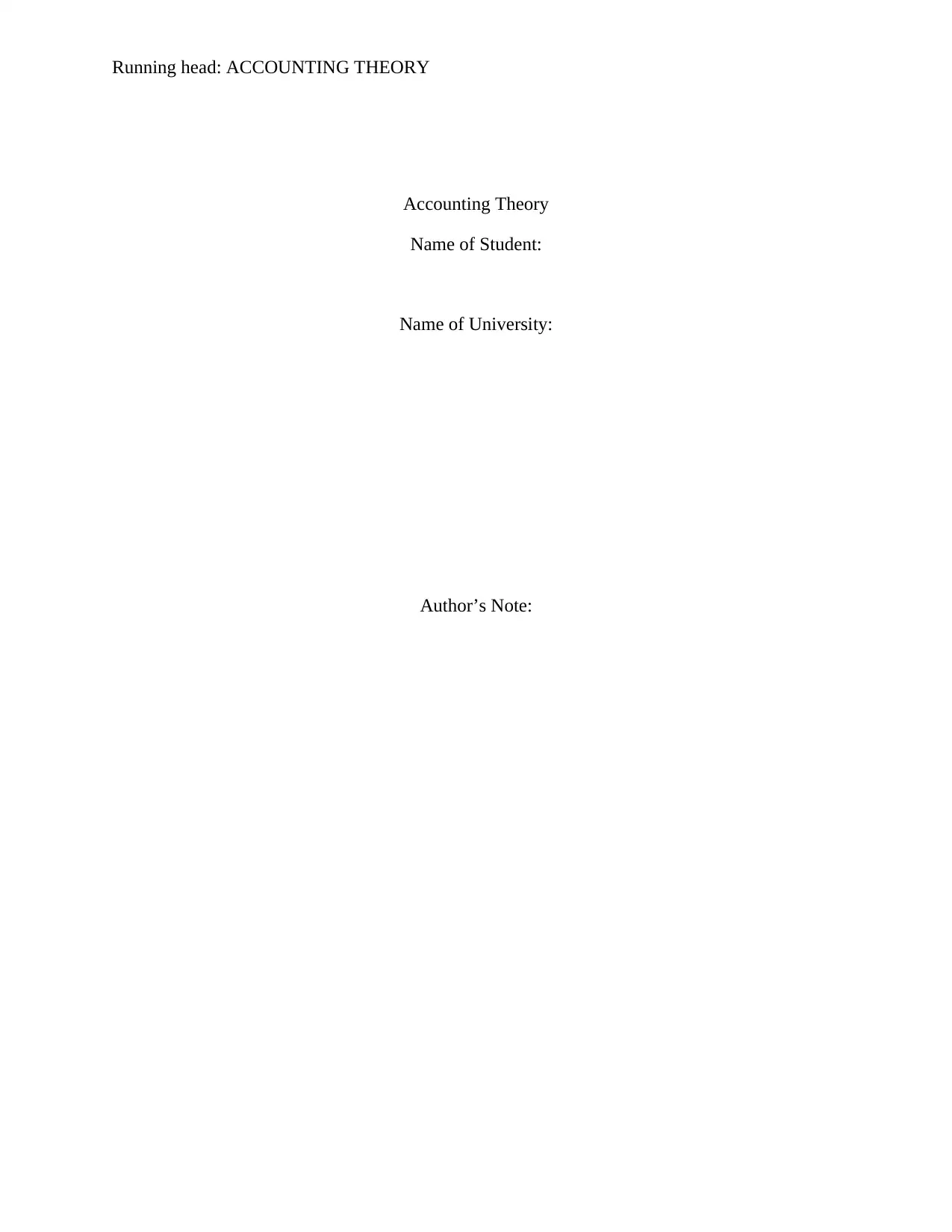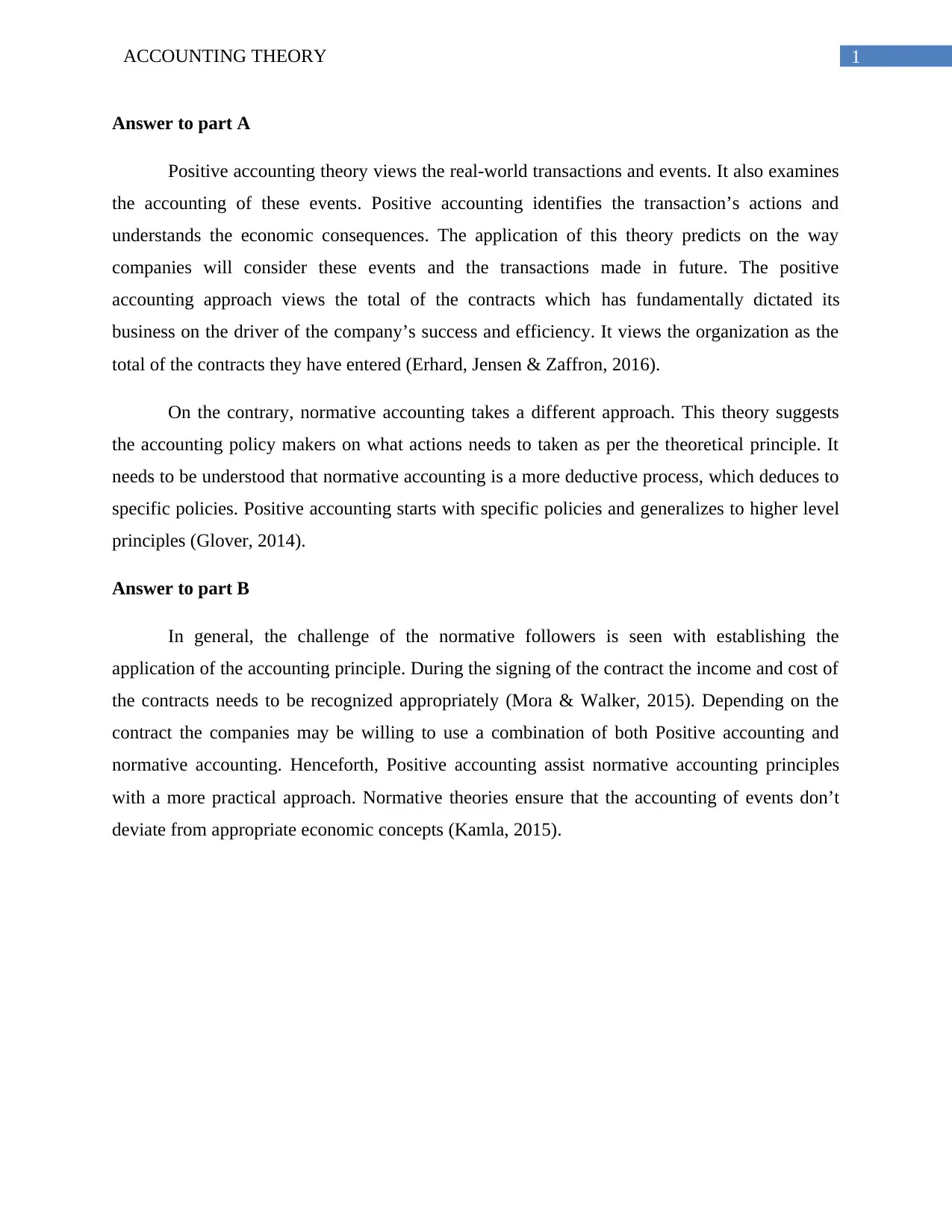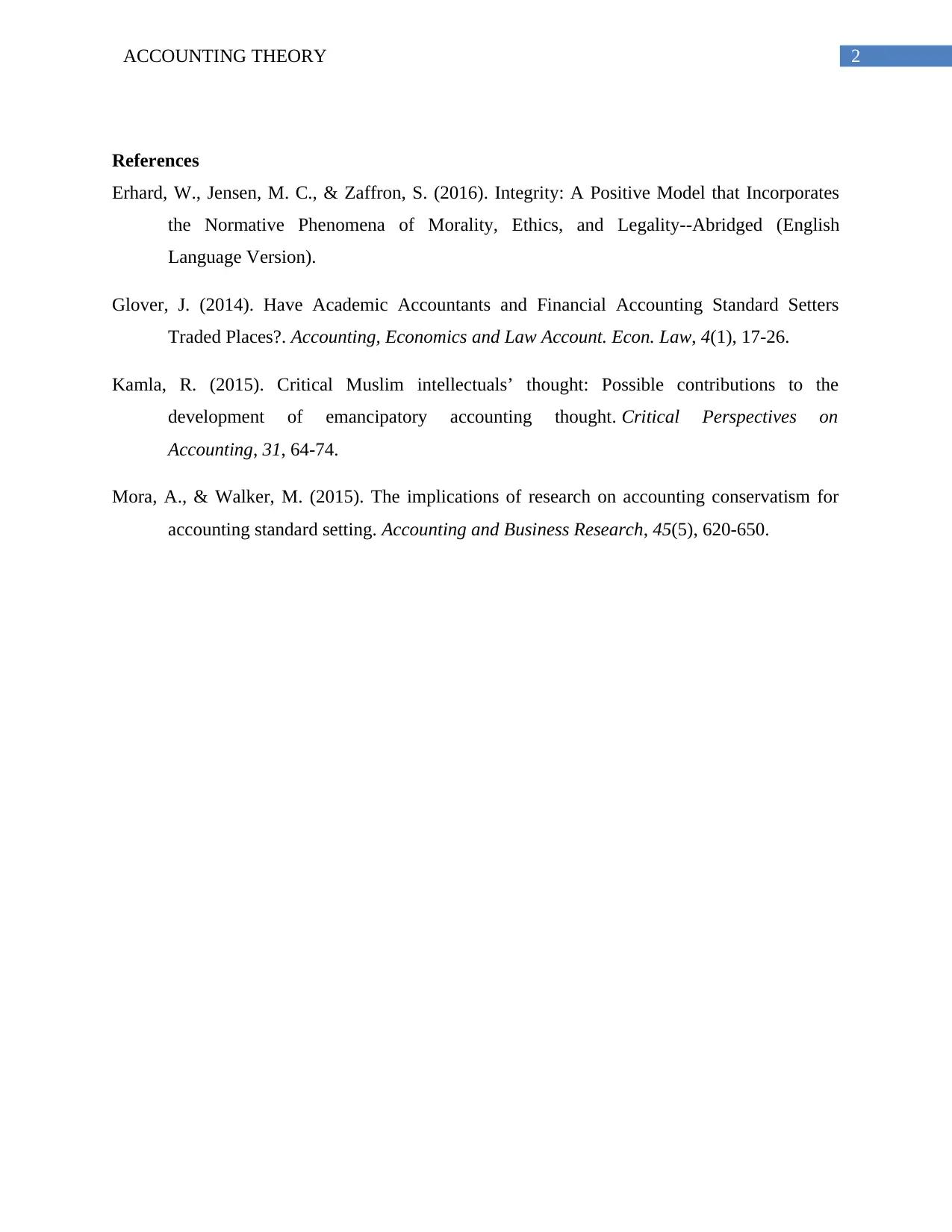Positive vs. Normative Accounting Theory
VerifiedAdded on 2020/05/16
|3
|459
|64
AI Summary
This assignment explores the contrasting perspectives of positive and normative accounting theories. It delves into how positive accounting analyzes real-world transactions and predicts future actions, while normative accounting guides policy makers based on theoretical principles. The assignment further discusses the challenges faced by normative followers in applying accounting principles and highlights how both theories complement each other.
Contribute Materials
Your contribution can guide someone’s learning journey. Share your
documents today.
1 out of 3





![[object Object]](/_next/static/media/star-bottom.7253800d.svg)